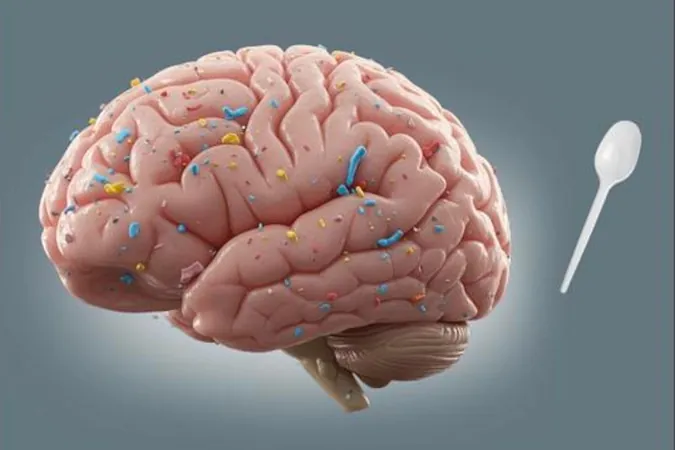
Shocking Discovery: Junk Food Might Be Polluting Our Brains With Microplastics!
2025-05-20
Author: Kai
Can Microplastics in Our Food Really Affect Our Minds?
In an eye-opening revelation, scientists have uncovered alarming levels of microplastics not just in wildlife, but within human brains as well. This shocking find raises serious concerns about the mental health repercussions of consuming ultra-processed foods.
The Hidden Dangers Lurking in Your Favorite Foods
Researchers recently published a study in the journal Brain Medicine, linking microplastics to various neurological issues like depression and dementia. Nicholas Fabiano, a lead author and psychiatry resident at the University of Ottawa, expressed growing concern, stating, "Ultra-processed foods now make up over half of our energy intake in the U.S., and these foods are packed with microplastics compared to whole foods."
What's Worse: Nuggets or Breasts?
You might want to think twice before grabbing that fast-food chicken nugget. Studies show these processed delights can contain a staggering 30 times more microplastics than their unprocessed counterparts—like chicken breasts. This is largely due to the excess plastic exposure during processing and packaging.
Microplastics Breaching Brain Defenses
What’s more terrifying is that microplastics can bypass the blood-brain barrier, a protective barrier designed to keep harmful substances out. Researchers from the University of New Mexico believe these particles hitch a ride on fat molecules, infiltrating the brain and causing oxidative stress that endangers cognitive health.
The Alarming Link Between Diet and Mental Health
The study reveals a disturbing relationship—the brain damage caused by microplastics echoes the effects of ultra-processed foods. Consuming these foods has been associated with heightened risks of anxiety, depression, and dementia. Fabiano's team suggests microplastics could be an underground factor fueling these mental health crises.
Hope on the Horizon: A Potential Clean-Up Solution!
But it’s not all doom and gloom! Another groundbreaking study also published in Brain Medicine indicates that a procedure called extracorporeal apheresis could help remove microplastics from our bodies. This technique involves filtering a patient's blood to eliminate unwanted substances, including microplastics.
In trials with 21 participants, this technique showed promise, effectively extracting microplastics during clinical tests.
A Call to Action!
As the plastic crisis worsens globally, researchers emphasize the need for both reducing our microplastic exposure through better dietary choices and efficient methods to detoxify our bodies. While apheresis is a potential pathway, extensive further research is vital to validate these early findings.
With these revelations looming over us, it’s time to rethink what we consume—not just for our bodies, but for our minds!




 Brasil (PT)
Brasil (PT)
 Canada (EN)
Canada (EN)
 Chile (ES)
Chile (ES)
 Česko (CS)
Česko (CS)
 대한민국 (KO)
대한민국 (KO)
 España (ES)
España (ES)
 France (FR)
France (FR)
 Hong Kong (EN)
Hong Kong (EN)
 Italia (IT)
Italia (IT)
 日本 (JA)
日本 (JA)
 Magyarország (HU)
Magyarország (HU)
 Norge (NO)
Norge (NO)
 Polska (PL)
Polska (PL)
 Schweiz (DE)
Schweiz (DE)
 Singapore (EN)
Singapore (EN)
 Sverige (SV)
Sverige (SV)
 Suomi (FI)
Suomi (FI)
 Türkiye (TR)
Türkiye (TR)
 الإمارات العربية المتحدة (AR)
الإمارات العربية المتحدة (AR)